Have you noticed that your skin looks more saggy and less firm than it used to?
If so (and this part of the aging process hits everyone at some point), this is a sign that your skin is losing its elasticity— i.e., its ability to bounce back and hold its shape after being stretched.
Skin elasticity is influenced by various factors, but nothing plays a more important role than an essential protein known as elastin.
In fact, being aware of the role elastin plays in your skin and taking steps to protect it is one of the best ways to keep your skin looking supple, firm, and smooth for years to come.
What is Elastin? The “Anti-Sag” Protein
Elastin is an essential protein found throughout the skin, cartilage, and connective tissues in your body. It’s naturally produced within the human body and is critical for making tissues and organs able to stretch and return to their normal state.
As you might imagine, the flexibility elastin brings to the table is especially key for healthy — and youthful-looking skin.
You can think of elastin fibers almost like microscopic coils or springs. When the skin on your face (or any other part of your body) stretches, the fibers uncoil to allow for movement. Then, they “spring back” into place to restore your skin to its normal position and firmness.
Just as importantly, elastin also helps to keep your skin from giving way to the force of gravity, another characteristic that makes it the top “anti-sag” protein.
Without strong, healthy elastin fibers, your skin would start to look loose and saggy and wrinkles would form more easily— which is unfortunately exactly what happens as we age.
Losing Skin Elasticity: What Happens to Elastin as You Age
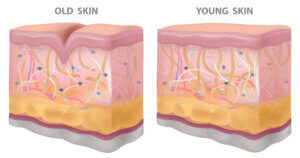
Maintaining and protecting elastin is one of the golden keys to keeping your youngest-looking skin. But as you may already know, it can be an uphill battle, particularly as you get older.
Though everyone’s skin ages differently, loss of skin elasticity— technically known as elastosis— happens to everyone at some point.
Elastin degradation is a huge driver of elastosis, although the loss of collagen and other structural proteins also contributes.
In part, elastin fibers begin to weaken and degrade simply because they are used over and over again every day. This is considered a normal part of the aging process.
However, elastin breakdown is drastically accelerated by enzymes known as elastases that degrade elastin fibers. Elastases can be produced in numerous ways, but appear most prolifically as the result of free radical damage, chronic inflammation, and UV overexposure.
Disrupting the activity and production of elastase AND combating inflammation, free radicals, etc. are all key to preserving elastin— and skin elasticity.
The great news is there are key steps you can take to do all of the above.
What Helps Skin Elasticity? Top Ways to Protect Elastin
Use Key Antioxidant Ingredients on Your Skin

Because free radicals are major instigators of elastase production, “feeding” your skin antioxidants is critical for protecting the existing elastin in your skin. And one of the best ways to do this is through your daily skincare routine.
Now, nature has already provided us with many quality antioxidant-rich ingredients, but there are a few that stand above the rest as far as elastin is concerned.
One such ingredient that absolutely must be highlighted is maple leaf extract.
In a breakthrough study, researchers found that red maple leaf extract contains powerful antioxidant compounds known as glucitol-core-containing gallotannins (GCGs). These compounds showed an ability to interfere with elastase (the enzyme that breaks down elastin) and may actually block elastase activity.
This makes maple leaf extracts outstanding for supporting skin elasticity— and as a bonus, they may also lighten dark spots.
A second ingredient to highlight is bakuchiol, a potent extract from the babchi plant. Like maple leaf extract, bakuchiol has antioxidant power and has been shown to improve wrinkles, elasticity, and firmness when used topically.
Bakuchiol also boosts collagen production and has been nicknamed a “natural retinol alternative” because it has demonstrated retinol-like effects without the skin irritation that often comes with retinol use.
Boost Collagen with Vitamin C
Elastin is truly the superstar behind skin elasticity, but collagen also plays a supporting role. It helps to provide structure and firmness, while elastin supplies most of the stretch— mainly because it’s about 1000 times more flexible than collagen!
Fortunately, boosting collagen levels is very doable (see bakuchiol above, which supports both collagen and elastin).
One the best natural collagen boosters is none other than vitamin C. It promotes collagen synthesis in the skin and can be used both topically via skincare ingredients and internally via food.
In skincare, look for vitamin C powerhouses like camu camu, Indian gooseberry (amla), rosehips, and mango seed butter.
Also, aim to get a good amount of vitamin C in your diet through foods like citrus, mangoes, colored bell peppers, leafy greens, kiwi, guava, and tomatoes.
Eat a Range of Antioxidant-Rich Foods & Herbs
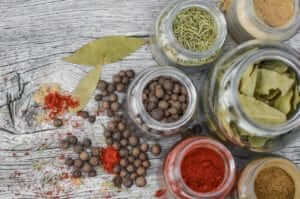
Consuming antioxidants via food, herbs, and spices is another key way to protect elastin. This replenishes your natural antioxidant defense system, which protects against free radical damage and combats inflammation that may stimulate the production of elastase.
The best approach is to regularly eat a variety of colorful, whole, organic plant foods (i.e., “eat the rainbow”) like:
- Berries
- Leafy greens
- Broccoli
- Orange fruits and veggies
- Citrus
- Nuts and seeds
Cocoa flavanols have specifically shown an ability to improve skin elasticity, so feel free to use raw cacao powder often or eat dark chocolate in moderation.
Finally, don’t forget about herbs and spices, which frequently have a much greater concentration of antioxidants than fruits or vegetables. Some outstanding choices include:
- Turmeric (an anti-inflammatory powerhouse)
- Green tea (contains the “super-antioxidant” EGCG)
- Cloves (top antioxidant spice)
- Cinnamon
- Oregano
- Rosehips (rich in vitamin C)
- Rosemary
- Thyme
- Sage
- Ginger (also combats inflammation)
Avoid Inflammatory Foods
Chronic inflammation is a big contributor to premature skin aging. It can accelerate elastin degradation by stimulating elastase production, impairing skin elasticity as a result.
And while you can combat inflammation with antioxidant-rich foods, it’s equally important to lessen your intake of pro-inflammatory foods.
This especially means avoiding or limiting processed foods as well as fried food, red/fatty meats, and refined grains.
Equally important is cutting back on sugar. Not only can excess sugar contribute to inflammation, it’s also involved in the formation of advanced glycation end products (AGEs), which is yet another contributor to losing skin elasticity.
Cleanse & Exfoliate Regularly (and Naturally)

Cleansing your face doesn’t directly contribute to improved elasticity. But what it does do is help get rid of dirt, toxins, and pollutants that attach themselves to your skin throughout the day, potentially contributing to free radical formation.
The best approach is to cleanse daily with a gentle, natural cleanser to avoid synthetic chemicals that may do more harm than good to your skin. Ideally, choose a USDA Organic cleanser so that you don’t have to worry about pesticides or any added toxins.
In addition to cleansing, regular exfoliation helps to remove dead skin cells and encourages skin cell renewal.
Again, the best option is to go natural rather than chemical to avoid putting more toxins on your skin. Try using a physical exfoliator, like a powder or a scrub, and aim to exfoliate 2-3 times a week (less often for sensitive skin).
Do Your Best to Reduce Stress
Stress affects every aspect of health, and your skin is no exception. Studies have shown that cortisol— the stress hormone— can actually decrease collagen in the skin and likely degrades elastin as well.
Avoiding stress completely is, of course, not possible, but this is more about reducing chronic feeling of stress.
A healthy diet and exercise can go a long way towards helping your body deal with the effects of stress. You might also want to consider incorporating breathwork exercises, yoga, tai chi, aromatherapy, or other relaxation techniques into your day.
Exercise Regularly

Regular exercise can be great for stress management, but it also helps skin elasticity all on its own.
In fact, not only has exercise been connected to a decreased aging of skin cells, researchers have also found that it may even lead to higher elastin levels. Plus, exercise improves blood flow to your skin, helping it to get more oxygen and essential nutrients.
The good news is you don’t have to exercise intensely to get these benefits (unless you want to).
Getting moderate-level aerobic exercise— walking, swimming, cycling, etc.— for 150 to 300 minutes each week is the current recommendation.
Get Enough Quality Sleep
Sleep is when your body and skin regenerate and do deep repair work. It’s no surprise, then, that researchers have found that both lack of sleep and poor quality sleep can increase signs of skin aging and reduce elasticity.
Part of the reason for this could be that sleep disruption throws off the production of cortisol in your body, which may cause collagen and elastin to break down more quickly.
Whatever the reason, it’s important to aim for the recommended 7 to 9 hours of sleep every night. Also, try to encourage deep, quality rest by avoiding blue light in the evening and creating a calming bedtime routine.
Stay Hydrated
Water is critical for keeping your skin (and whole body) hydrated. It helps to flush out toxins that may accelerate skin aging and may directly improve skin elasticity.
This makes good hydration habits key to healthy-looking, supple skin.
Pure water could well be considered the ultimate beverage for hydration, but you can also rotate in other water-based drinks for younger-looking skin.
For example, coconut water contains essential electrolytes and antioxidants, while aloe vera juice may have additional properties that improve elasticity. Green tea is another great option and is filled with skin-boosting antioxidants.
Avoid Smoking, Excess Alcohol, & Overexposure to UV Rays

There are a few “bad habits” that stimulate free radical production and degrade elastin more than most.
Smoking is a prime example of this and has been shown to alter and degrade elastin fibers in the skin. It also accelerates premature aging as a whole, impairing elasticity and increasing wrinkle formation.
Alcohol, especially in large amounts, dehydrates your skin, making it look older and more wrinkled. It can also increase signs of aging, including fine lines and under-eye bags, and may slow down collagen and elastin production.
Ultraviolet (UV) rays from the sun can degrade elastin as well by causing something known as photodamage or photoaging. So, while some sun exposure each day is good for boosting vitamin D production, you’ll want to protect your skin during prolonged periods outdoors.
Consider Trying Red Light Therapy
Red light therapy is an emerging natural health tool with numerous potential benefits.
Research so far has shown that using red light therapy on skin for a period of 4-6 weeks can boost collagen production, reduce the appearance of wrinkles, AND improve skin elasticity. Best of all, it does this in a non-damaging, non-chemical way with no reported side effects.
You can find red light therapy offered in some dermatologist and medical offices. Quality at-home devices are also now available.
Treat Yourself to a Facial Massage
Though it may sound luxurious, a facial massage is something you can treat yourself to at home. It simply involves gently massaging the muscles and contours of your face using your fingers or a tool made for the purpose.
Along with helping facial muscles to relax, this type of massage may stimulate certain skin proteins and diminish signs of aging like wrinkles and saggy-looking skin. It also increases blood flow to the skin of your face, making sure skin cells receive oxygen and essential nutrients.
For the best results, do a facial massage daily or at least a few times a week.
Support Skin Elasticity Around Your Eyes
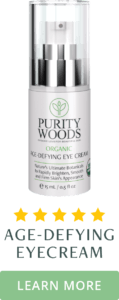
The skin around your eyes is especially prone to wrinkles, fine lines, bags, and sagginess.
Along with following the steps listed above to support elasticity, it’s also critical to care for this area with a product specifically designed for the delicate skin around your eyes, which dries out more easily than the rest of your face.
If you are in need of a targeted solution like this, look into the Age-Defying Eye Cream from Purity Woods.
This 100% natural and USDA Certified Organic cream is filled with powerful botanicals that target multiple signs of aging. It features three different maple leaf extracts as well as bakuchiol-rich babchi oil— two of the most powerful ingredients for protecting elastin and supporting skin elasticity.
The Age-Defying Eye Cream also contains vitamin C ingredients, like mango seed butter, to boost collagen, nourishing moisturizers, and powerful antioxidant ingredients (like sumac berry extract).
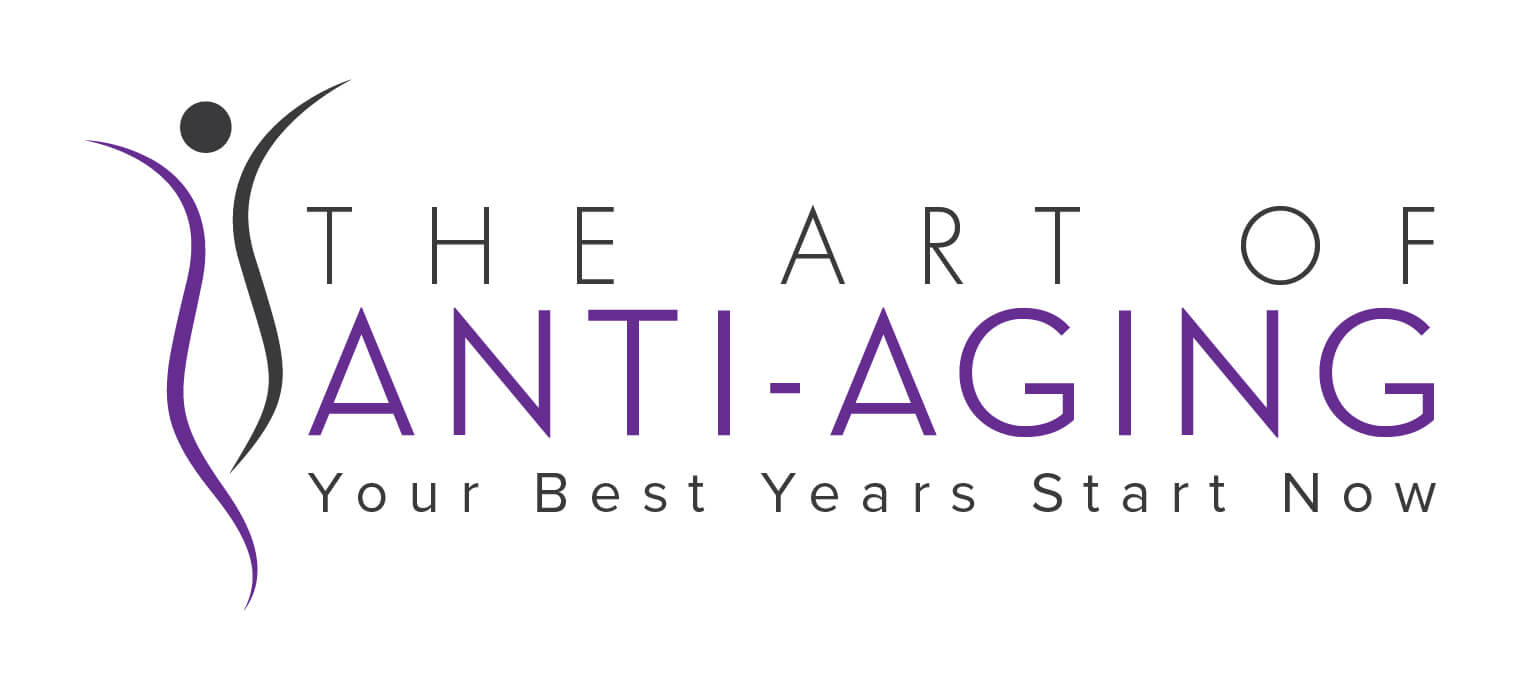
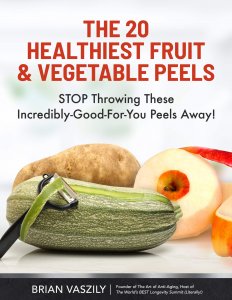
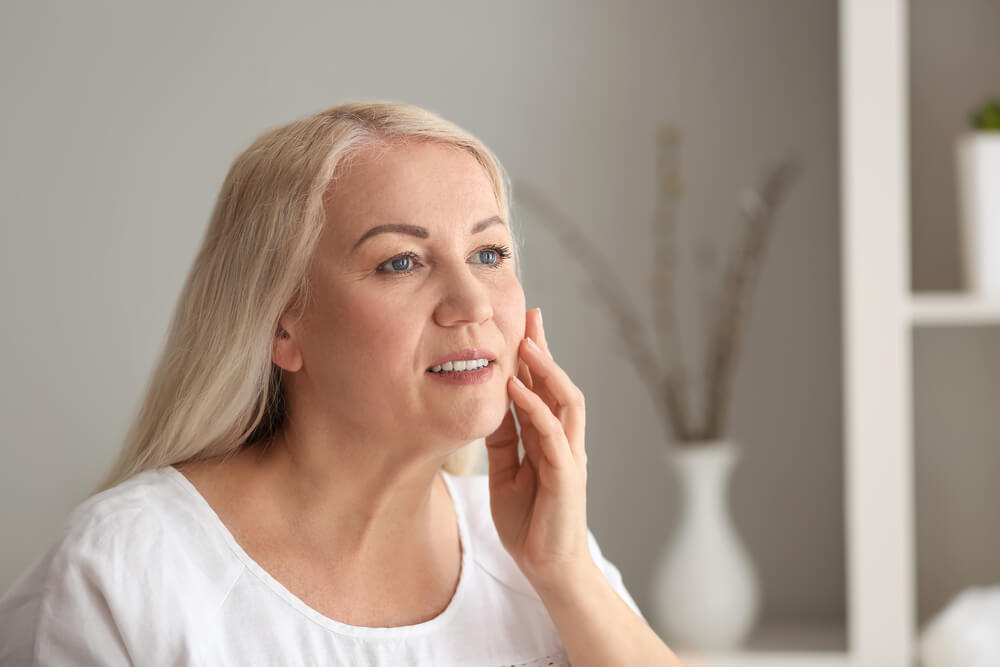
Thanks for all of this wonderful information!
Looking forward to seeing more.
I have tried all your products and love them all. My face especially loves them. Thank you for all the information!
I am new to Purity Woods but am loving the products! They smell and feel wonderful
AWESOME!
Thank You!
Thank you – read your article with interest; most informative and welcome !
Thank you for so much information. l have decided to apply suggestions and advice to my life that I become healthier in every way. I am very,very grateful!!🙏
I like your article. Next time, perhaps you can also consider writing article on how to make the skin healthy so that it can fight allergies. Thank you and God bless
Hi I enjoyed the information that you put together, helps to understand what is going on.
Wonderful and natural remedies information.
l will continue to read future articles of yours.
Thank you 😊
Thank you for the information. The sleep & exercise info makes sense…my partner passed unexpectedly & it disrupted my sleep & affected my physical activity…def saw the signs of aging as a result 😢
v informative n helpful article. Thanks V Much. Bless you
Great article and very informative. I’m using the products and have been pleased and impressed with the quality.
Thank you for the information. Very helpful
Too bad you are in USA . Probably tariffed
and would have to pay not only shipping but duty to other country. Sounds good. Thanks for well written information and didn’t go on and on and on so I took time to read it .
Awesome article. The last three years I have experienced significant stress and lack of sleep, definitely takes a visible toll on your skin. Thank God for this product and information you provide. Believing for a recovery of healthy skin for myself and for others experiencing this frustration.
I always read your articles, but this is the first time I have thanked you. You and whoever helps you compose your information does a great job!
I usually read your ” jokes” first, and I always get a good laugh!
You appear to be low key, sincere, and very good with your research.
Thank you so much for all the information .
Great information about how to add good nutrients in our lifestyle along with exercise, to improve better skin and elasticity. Thank you so much 🙏🏻
Well worth reading and implementing. Rosea L.
Good healthy reminder to take care of our skin. After all our skin surrounds our organs.
USDA organics is the best safer way to care of ourselves. Very informative.
Thank you!
I’m 73. I fried myself at the beach nearly every day after high school, using baby oil for the tan! What we didn’t know then. After I began using your products regularly, I’ve had 3 or 4 people close to me say that my skin looks great! Then they ask how. Because of Purity Woods. Now will you please develop a line of lipsticks?
Hi Lea, yes, so many of us from certain generations did stuff like that! Meanwhile, thank you for the kind words about Purity Woods — it is not easy to create very effective products that are truly free of junk that should not be on or in our bodies, i.e. USDA Certified Organic… but we intend to look into makeup down the line. Thank you again!!!
Awesome thank you